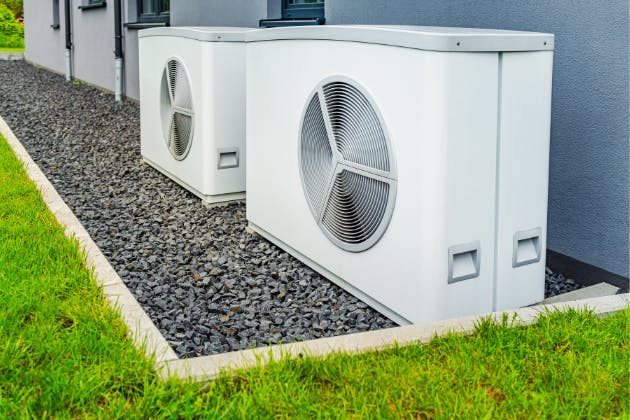Heat pumps are becoming more and more well-liked as effective and environmentally responsible home heating and cooling options. Many people still have concerns, nonetheless, regarding their advantages and mode of operation. To assist you better grasp the benefits and workings of heat pumps, we'll answer some commonly asked questions in this blog post.
For heat pump installations in Norfolk, Norwich, and the surrounding areas, call us on 07833 494194.
Frequently Asked Questions: Heat Pumps

1. What exactly is a heat pump?
A heat pump is a type of heating and cooling system that uses a refrigerant cycle to move heat from one place to another. When in heating mode, it gathers heat from the ground or outside air and moves it inside to warm your house. When in cooling mode, the process is reversed, with heat being drawn from indoor spaces and released outdoors.
2. What is the operation of a heat pump?
Heat pumps use a refrigerant to collect and release heat as it circulates the system, operating based on the law of thermodynamics. When in heating mode, heat is taken in by the refrigerant through an external unit called the evaporator and transferred inside. The process is reversed in cooling mode, where heat is drawn from indoor spaces and released outdoors.
3. Do heat pumps use less energy?
Indeed, heat pumps use very little energy, especially in temperate climates. They can offer up to four times as much energy as they consume because they transfer heat rather than produce it, which saves a lot of money on energy costs.
4. What advantages might a heat pump provide?
Lower energy costs, fewer carbon emissions, year-round consistency in heating and cooling, and adaptability (since they can handle both heating and cooling) are some advantages of heat pumps. Furthermore, because heat pumps don't release carbon monoxide or other dangerous pollutants, they are safer than heating systems that rely on combustion.
5. Are heat pumps appropriate in chilly areas?
Although heat pumps work best in temperate conditions, technological advancements have made them more and more appropriate for use in colder climates. Heat pumps intended for cold climates are engineered to function effectively in temperatures ranging from -15°C to -25°C, ensuring dependable heating throughout the winter months.
6. What is the lifespan of heat pumps?
Heat pumps have an extended lifespan of up to 15 years when properly maintained. Your heat pump's lifespan may be increased with routine servicing by a trained professional, which includes cleaning, lubricating moving parts, and monitoring refrigerant levels.
7. Do heat pumps make a noise?
The noise levels of contemporary heat pumps are similar to those of an air conditioner or refrigerator, meaning they function silently. Further reducing noise levels can be achieved with proper installation and ongoing maintenance.
Get in touch
In summary, heat pumps provide effective and environmentally responsible home heating and cooling options. You can contribute to energy savings and environmental sustainability by choosing to include heat pumps in your HVAC systems by being informed about how they operate and their advantages.
We provide heat pump installations in Norfolk, Norwich and the nearby areas. Just call us on 07833 494194 or use our contact form.
